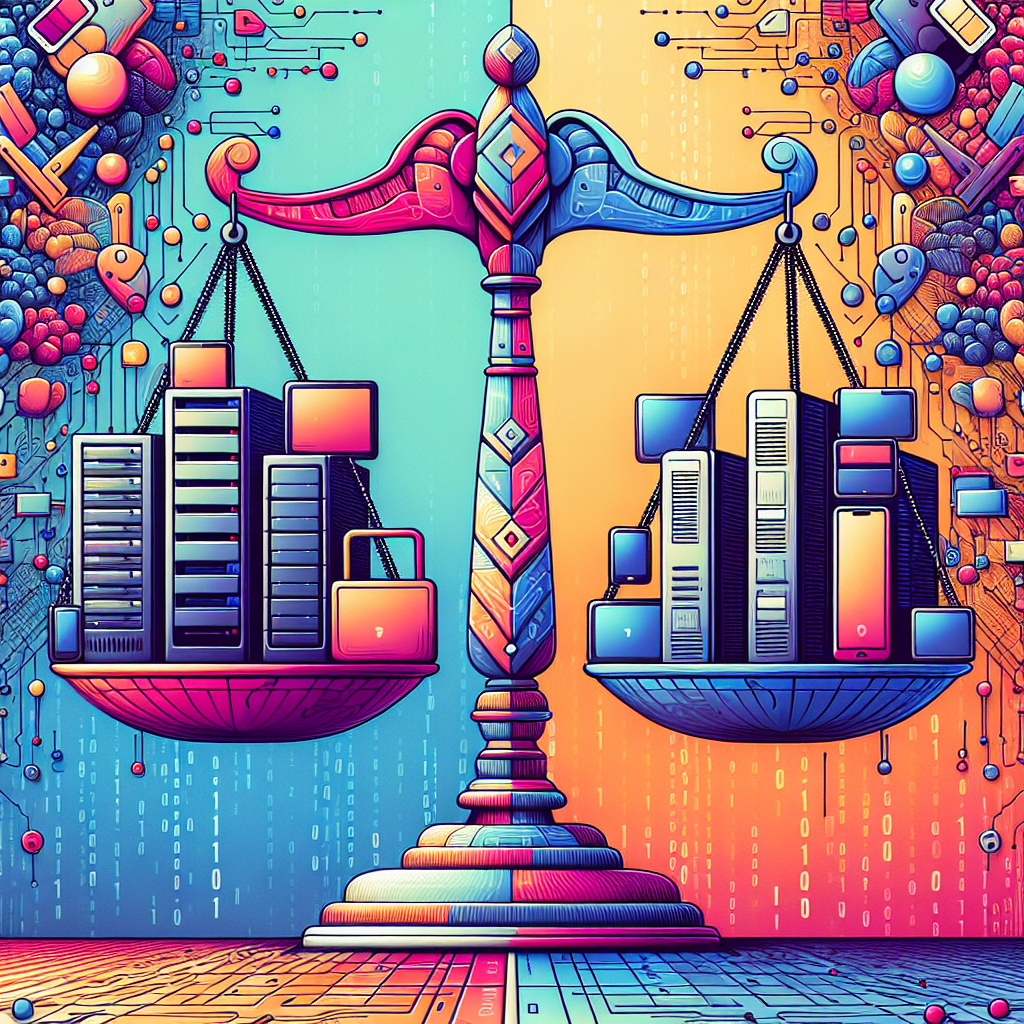The democratization of AI, or artificial intelligence, refers to the process of making AI technology and tools accessible to a wider range of users, beyond just expert data scientists and programmers. This trend is driven by the increasing demand for AI applications in various industries and the need for organizations to leverage AI to gain a competitive edge. As AI becomes more democratized, it presents both challenges and opportunities for businesses, governments, and society as a whole.
Challenges of democratizing AI:
1. Skills gap: One of the main challenges of democratizing AI is the lack of skilled professionals who can effectively use and implement AI technologies. Many organizations struggle to find data scientists and AI experts who can develop and deploy AI solutions.
2. Bias and fairness: AI systems are only as good as the data they are trained on, and if the data is biased, the AI system will also be biased. Ensuring fairness and equity in AI systems is a major challenge, as biases can lead to discriminatory outcomes in areas such as hiring, lending, and criminal justice.
3. Privacy and security: AI systems often require large amounts of data to train and operate effectively. This raises concerns about privacy and data security, as organizations must ensure that sensitive data is protected and used responsibly.
4. Regulation and ethics: As AI becomes more widespread, there is a growing need for regulations and ethical guidelines to govern its use. Issues such as transparency, accountability, and the impact of AI on jobs and society must be addressed to ensure that AI technologies are used responsibly.
Opportunities of democratizing AI:
1. Increased innovation: By making AI tools and technologies more accessible, organizations can drive innovation and create new opportunities for growth. Democratizing AI allows smaller businesses and startups to compete with larger companies by leveraging AI to develop new products and services.
2. Improved decision-making: AI can help organizations make better decisions by analyzing large amounts of data and identifying patterns and trends that humans may overlook. Democratizing AI allows more users to access these capabilities and make data-driven decisions in real-time.
3. Enhanced productivity: AI technologies such as machine learning and natural language processing can automate repetitive tasks and streamline workflows, leading to increased productivity and efficiency. By democratizing AI, organizations can empower employees to focus on higher-value tasks and drive business results.
4. Personalization: AI enables organizations to deliver personalized experiences to customers by analyzing their preferences and behavior. Democratizing AI allows businesses to create tailored products and services that meet the unique needs of individual customers, leading to increased customer satisfaction and loyalty.
Frequently Asked Questions:
1. What are some examples of AI applications that have been democratized?
– Some examples of democratized AI applications include chatbots, predictive analytics tools, and image recognition software. These tools are now accessible to a wider range of users, enabling businesses to enhance customer service, improve decision-making, and automate processes.
2. How can organizations overcome the skills gap in AI?
– Organizations can overcome the skills gap in AI by investing in training and development programs for employees, partnering with educational institutions to recruit top talent, and leveraging AI platforms that simplify the development and deployment of AI solutions. By providing employees with the necessary skills and resources, organizations can build a strong AI team and drive innovation.
3. How can organizations ensure fairness and equity in AI systems?
– Organizations can ensure fairness and equity in AI systems by implementing bias detection and mitigation techniques, conducting regular audits of AI algorithms, and involving diverse stakeholders in the development process. By promoting transparency and accountability in AI systems, organizations can reduce the risk of biased outcomes and build trust with users.
4. What are some ethical considerations organizations should keep in mind when democratizing AI?
– Some ethical considerations organizations should keep in mind when democratizing AI include respecting user privacy, ensuring data security, and promoting transparency in AI systems. Organizations should also consider the potential impact of AI on jobs and society, and take steps to mitigate any negative consequences. By following ethical guidelines and best practices, organizations can use AI responsibly and create value for stakeholders.
In conclusion, the democratization of AI presents both challenges and opportunities for organizations looking to leverage AI technology. By addressing the skills gap, promoting fairness and equity, and adhering to ethical guidelines, organizations can unlock the full potential of AI and drive innovation and growth. As AI becomes more accessible to a wider range of users, it is important for organizations to consider the impact of AI on society and take steps to ensure that AI technologies are used responsibly.

